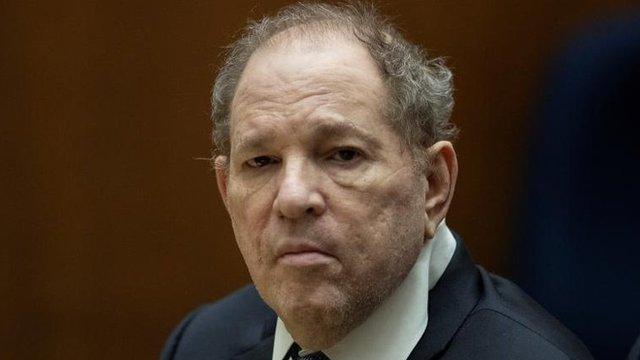Harvey Weinstein trial: Judge warns defence as verdict nears
- Published
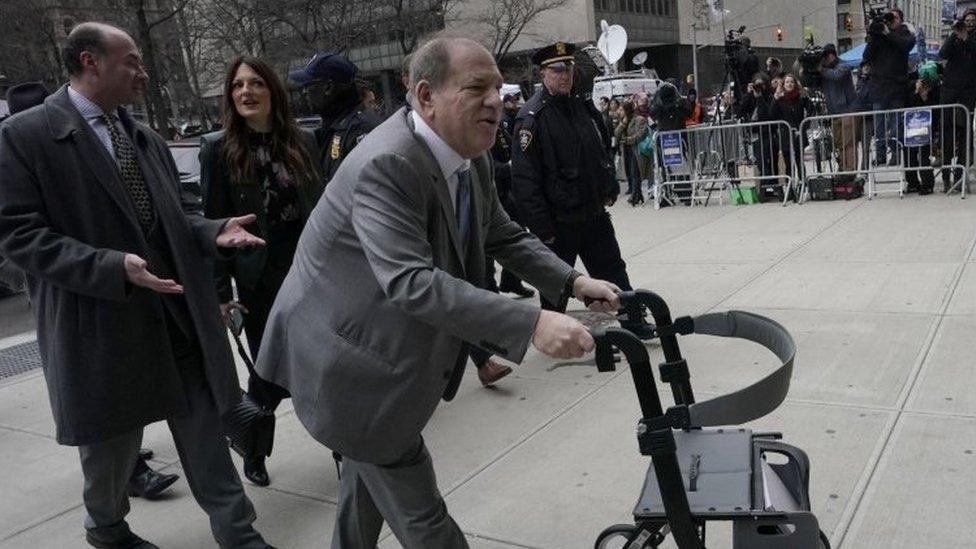
The 67-year-old denies five charges, including rape and sexual assault
The judge in the Harvey Weinstein rape case has warned the lead defence lawyer not to talk to the press, after she penned an opinion piece on Saturday.
Writing in Newsweek, Donna Rotunno called on jurors to "do what they know is right", external.
But she told Justice James Burke the piece was not intended to address the jury directly.
The row came before the jury of seven men and five women were sent away to try to reach a verdict.
They have now finished their deliberations for the day, after asking for clarification of legal terms and for plans of the apartment where one of the alleged assaults took place.
Mr Weinstein has pleaded not guilty to sexually assaulting former production assistant Mimi Haleyi and raping former actress Jessica Mann.
The trial began in New York last month.
Accusations of sexual misconduct against the Hollywood producer by dozens of women helped drive the #MeToo movement.
Only two of the accusers' cases, those of Mimi (Miriam) Haleyi and Jessica Mann, have led to individual criminal charges in New York, but the testimony of others is being used as supporting evidence.
What did the judge say?
Judge Burke instructed jurors on Tuesday morning before they retired to consider their verdict.
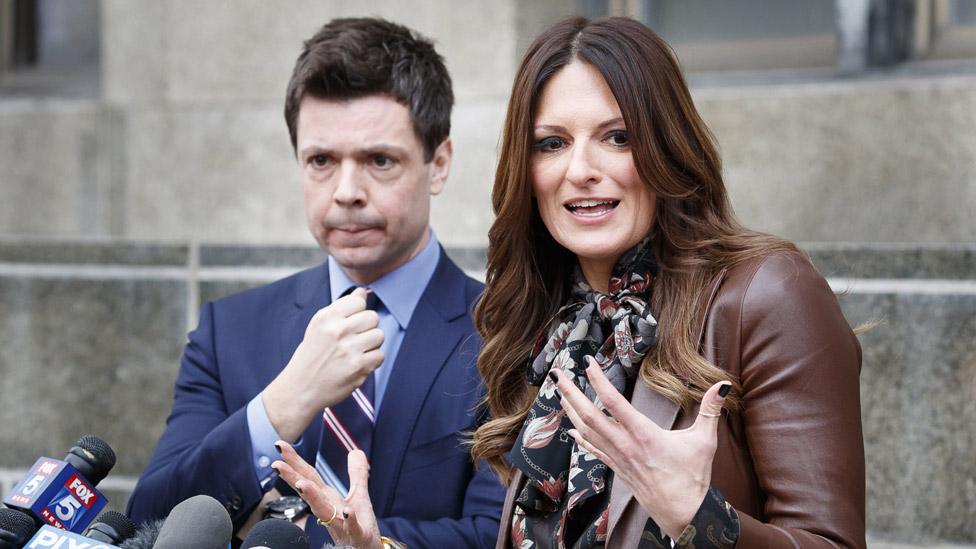
Donna Rotunno, pictured here with fellow defence attorney Damon Cheronis, denied directly addressing jurors
As the court session opened, prosecutors asked the judge to instruct jurors to ignore the Newsweek piece as it was "100% inappropriate".
Judge Burke refused the prosecutors' request, but restated a ban he imposed at the beginning of the trial on both defence and prosecution from giving media interviews.
"I would caution you about the tentacles of your public relations juggernaut," he told Ms Rotunno.
The defence attorney responded: "This is an op-ed about the jury system as a whole, about the criminal justice system as a whole."
In the piece, she accused her opponents of trying to influence the trial.
"The mocking of Mr Weinstein's walker, the unflattering courtroom-artist sketches of his body, the countless critical op-eds and biased stories, and the convenient timing of the politically-motivated charges in Los Angeles were all designed to pre-determine his guilt," she wrote.
"I implore the members of this jury to do what they know is right and was expected of them from the moment they were called upon to serve their civic duty in a court of law."
But Judge Burke asked the defence: "You don't think addressing the jury in the first person isn't problematic?"
Prosecutors have argued Mr Weinstein was a "seasoned" sexual predator who preyed on aspiring young actresses.
His defence team said his actions were consensual, including in one "loving" relationship. They also said prosecutors had failed to present any forensic evidence or eyewitness accounts.
The 67-year-old denies five charges, including rape and sexual assault, relating to two accusers. The jury must reach unanimous verdicts on each count.
Mr Weinstein, who never took the stand during the trial, could face life behind bars if convicted.
What are the accusations against Mr Weinstein?
Once one of Hollywood's most decorated and lauded producers, Mr Weinstein has been accused of sexual misconduct by more than 80 women.
But few of the complaints have led to criminal charges.
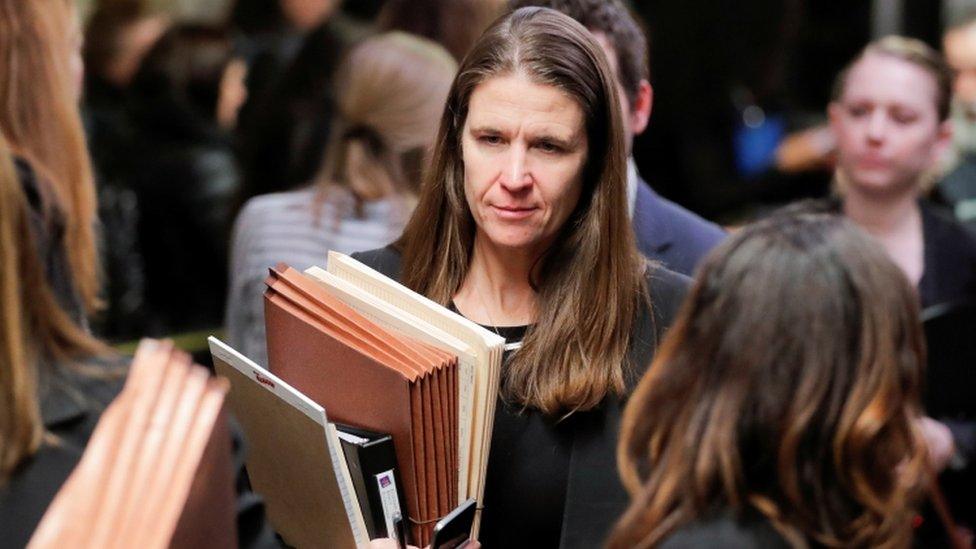
Manhattan assistant district attorney Meghan Hast laid out graphic allegations
During the trial, one-time aspiring actress Jessica Mann detailed a catalogue of abuse by the Hollywood producer, saying he had once trapped her in a hotel bedroom and raped her. Three of the five charges against Mr Weinstein relate to Ms Mann.
Production assistant Mimi Haleyi told the court Mr Weinstein had assaulted her twice in Manhattan in 2006, after he helped her get a job on a television show he produced.
Former Sopranos actress Annabella Sciorra testified the film producer had raped her at her home in the early 90s, after forcing his way into her apartment and attacking her.
That incident happened too long ago to be pursued under New York law but prosecutors wanted to use Ms Sciorra's testimony to support their argument that the accused was a sexual predator.
To do so, they must prove Mr Weinstein committed a serious sexual offence against at least two people.
Under cross-examination, both Ms Mann and Ms Haleyi acknowledged at least one consensual sexual encounter with Weinstein after the alleged assaults.
Defence lawyers presented dozens of emails and text messages in court that appeared to show both women on friendly terms with Mr Weinstein years after the alleged attacks.
Who are the main accusers?
Mimi (Miriam) Haleyi. A former production assistant who accuses Mr Weinstein of performing a forcible sex act on her in 2006. Prosecutor Meghan Hast said Mr Weinstein had tempted Ms Haleyi with job opportunities and after having had her brought to his apartment, lunged at her, pushed her on to a bed and forced her into the sex act, leaving her "motionless like a dead fish".
Jessica Mann. An actress named for the first time. Ms Hast said Ms Mann had had encounters with Mr Weinstein over a number of years, and would testify that Mr Weinstein had raped her multiple times, once leaving her like a "rag doll" in her hotel room in March 2013.
Annabella Sciorra. The actress testified she had been "violently raped" by the defendant in the winter of 1993-94, leaving her "emotionally and physically destroyed".
Hired by Weinstein to extract information on celebrities
- Published31 January 2020
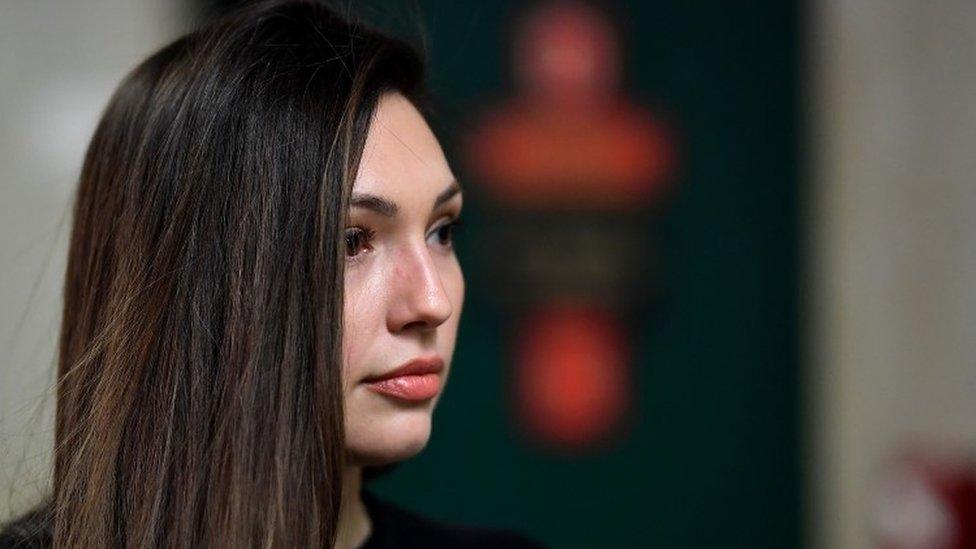
- Published23 January 2020
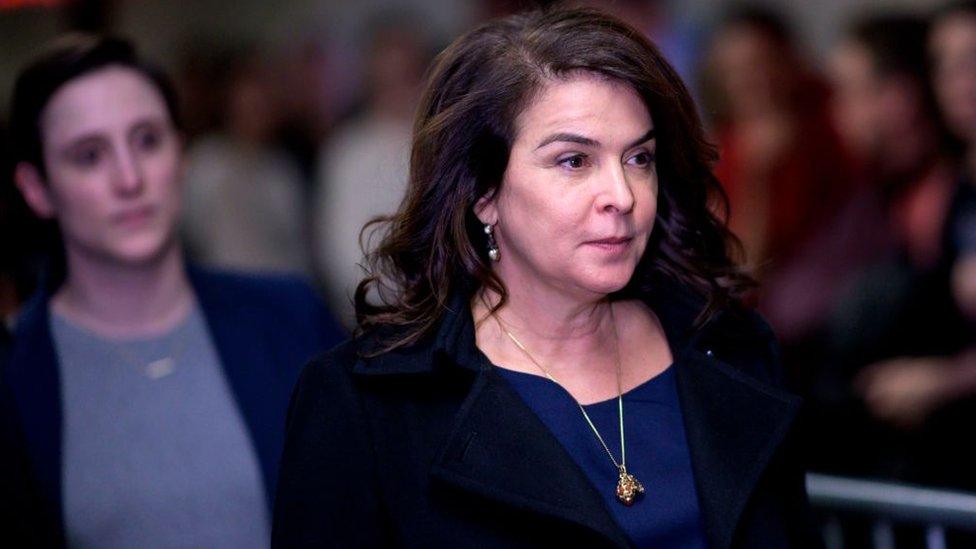
- Published17 January 2020
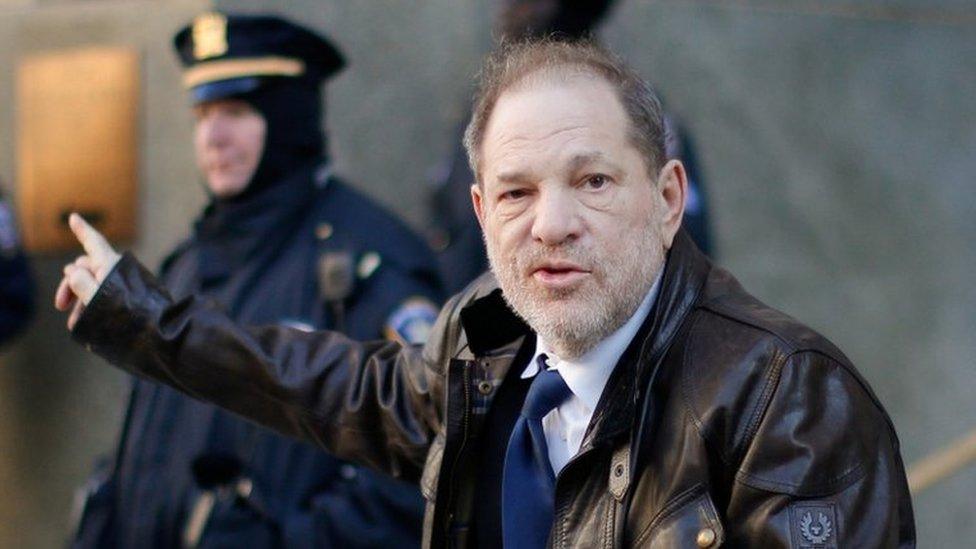
- Published7 January 2020
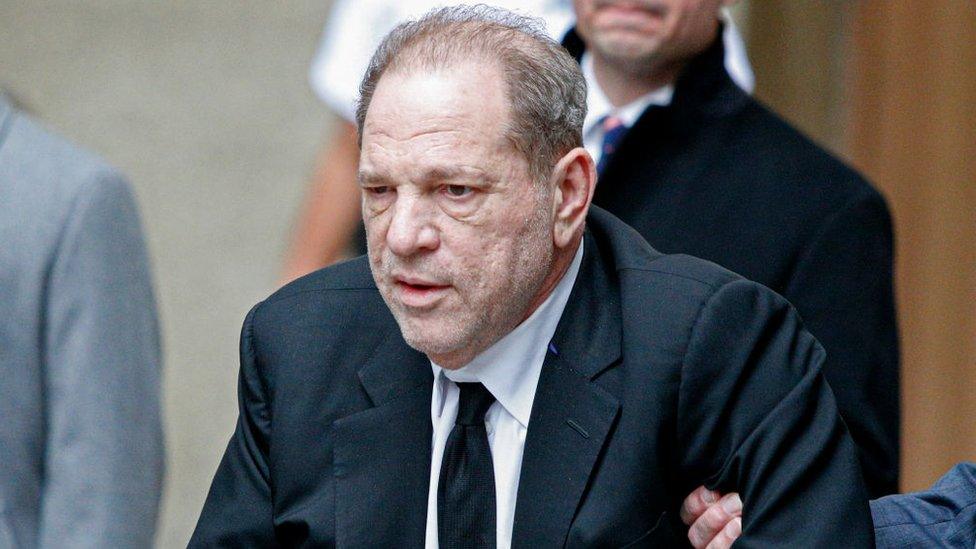
- Published6 January 2020
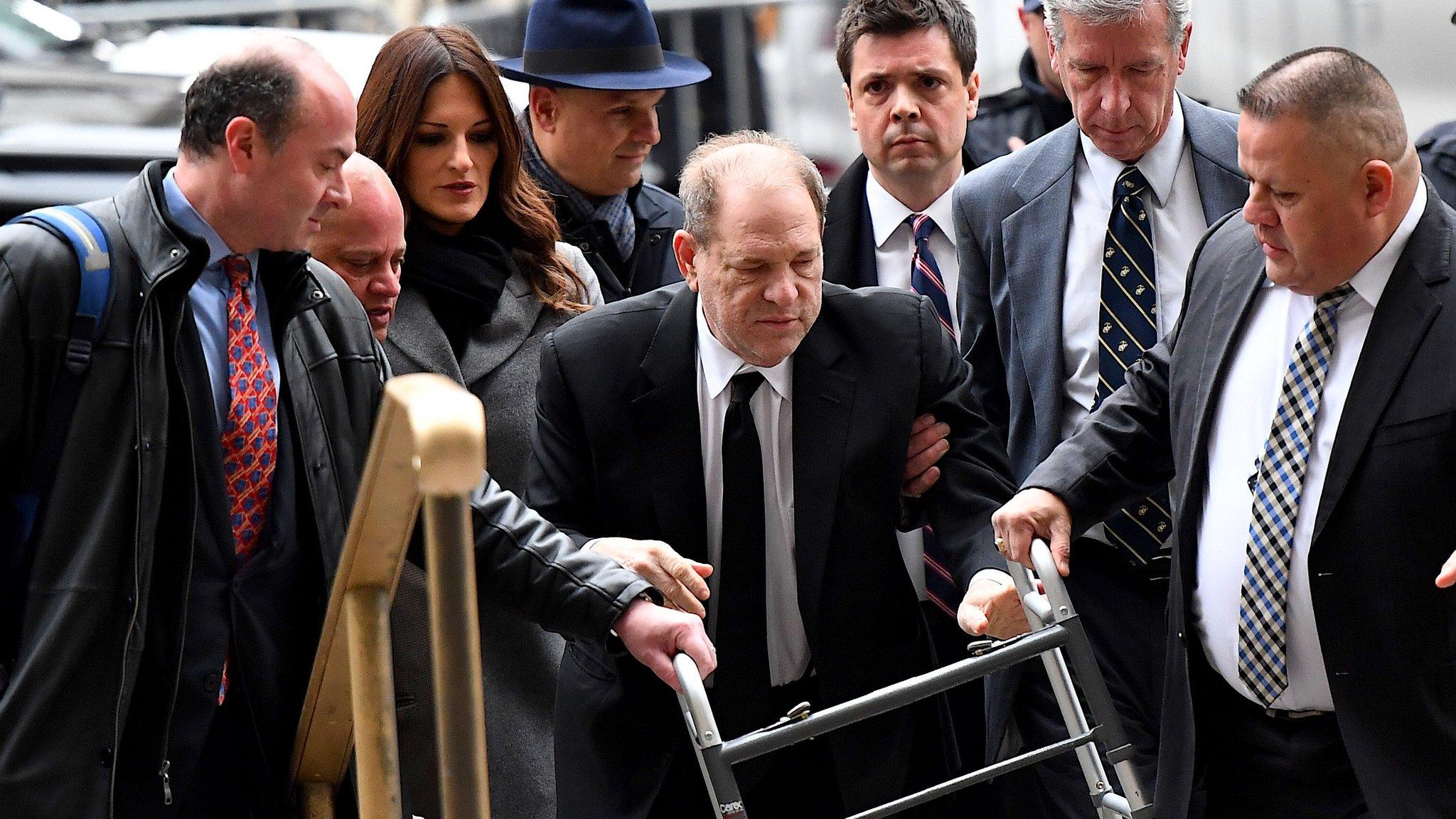
- Published24 February 2023
